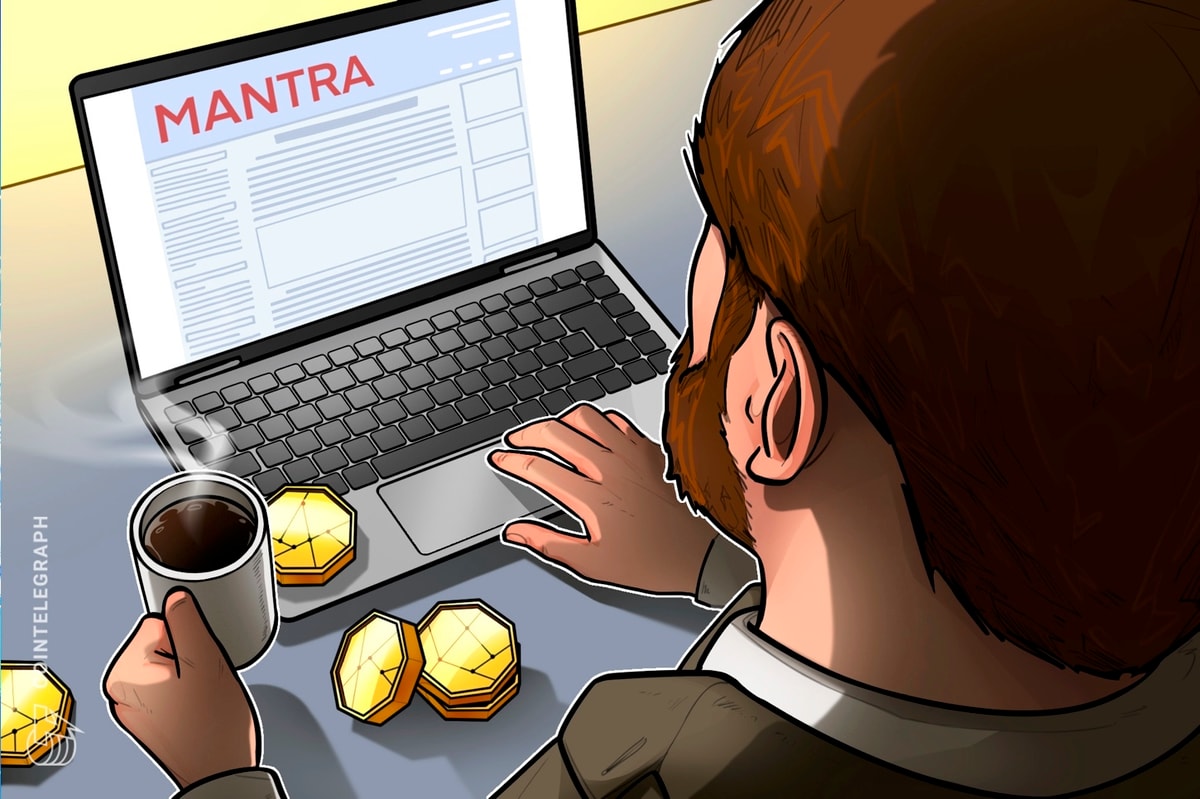The crypto industry needs to break from its tendency to serve and eat its own cooking.
The big picture: “‘Financial inclusion’ might be a buzz word, but [decentralized finance, or DeFi] has the ability to do this,” Mike Sall, co-founder and chief of decentralized credit protocol Goldfinch, tells Axios.
- “In order for the industry to expand significantly and to have more impact in the world, we have to bring the broader global economy to the space.”
Between the lines: Sall is talking his book: Goldfinch, which runs on the Ethereum blockchain, aims to bootstrap small, non-crypto businesses in emerging countries into the global economy with undercollateralized crypto loans.
- Be smart: Crypto loans backed by crypto assets often require as much as 150% of collateral, but because Goldfinch deals in loans backed by real things like motorcycles or electric cook stoves, its loans requires less, or what is described as being “undercollateralized.”
Why it matters: Credit protocols like these, including Goldfinch, Maple and Centrifuge, are the next frontiers of lending because they’re figuring out how to get capital to businesses that would otherwise go unserved.
- Sall also points out how DeFi protocols like Goldfinch have held up in spite of the crypto contagion involving centralized exchanges.
- “All the assets and transactions are visible right there on-chain. And that’s also the reason why a lot of the [centralized finance] players actually paid their DeFi obligations first, because you can’t hide and you can’t lie,” Sall says.
How it works: Potential borrowers can propose a so-called Borrower Pool to investors on the platform who are looking to generate yield.
- If a bank were underwriting a loan, it would first check a potential borrower’s creditworthiness. Goldfinch uses a network of randomly selected auditors, incentivized to do “human-level” checking on the proposal.
- Investors or “backers” evaluate and fund a Borrower Pool with Circle’s USD Coin stablecoins.
- Assuming that all is approved, borrowers can draw down those stablecoins from their pool, exchange it for fiat and deploy that to end-borrowers for their specific markets.
Context: Undercollateralized loans might scare investors in the wake of multiple centralized crypto lenders filing for bankruptcy.
- Be smart: DeFi protocols aren’t necessarily on the hook when a borrower defaults. They facilitate lending, operating a platform that connects investors searching for yield with businesses looking for a loan.
- Yes, but: If folks using the various lending protocols get burned due to loan defaults, they may sit on their hands and pause deposits. That in turn would throw off the crucial balance between lenders and borrowers on DeFi lending protocols.
Details: Goldfinch uses a “trust through consensus” mechanism to figure out how to allocate capital from a pool. So the protocol doesn’t “trust” one particular investor or auditor, but relies on the collective actions of many.
- Since Goldfinch’s early 2021 launch it has provided more than $100 million in loans, per a Dune Analytics dashboard.
- Via Goldfinch fintech shop Tugende, got a $5 million loan to expand its motorcycle taxi business in Kenya and Uganda.
- Greenway, a seller of cook stoves to low-income consumers in South Asia and sub-Saharan Africa, got a $750,000 loan, Sall says.
State of play: Total value locked or TVL, a metric of all assets on the DeFi protocol including coins deposited into liquidity pools, has been in decline, but it’s not necessarily due to the contagion caused by the collapse of crypto exchange FTX.
- “There has definitely been TVL pullback, which will happen in any bear market,” Sall says. “That’s less about contagion, and more just a general market dynamic. When prices drop, investors tend to pull back and reduce their risk profiles.”
What he’s watching: Regulation.
- “My guess is that regulators will start by requiring transparency of funds and how they’re used, something that public companies are required to do and that DeFi already does by default,” Sall says.
The bottom line: “The ideal would be for Congress to clearly define what crypto “securities” are, and provide clear paths for the tokenization of existing assets, commercial use, and how smart contracts can be recognized legally.”
Read More: news.google.com










 Bitcoin
Bitcoin  Ethereum
Ethereum  Tether
Tether  XRP
XRP  Solana
Solana  USDC
USDC  TRON
TRON  Dogecoin
Dogecoin  Cardano
Cardano  Lido Staked Ether
Lido Staked Ether  Wrapped Bitcoin
Wrapped Bitcoin  LEO Token
LEO Token  Avalanche
Avalanche  Chainlink
Chainlink  Stellar
Stellar  USDS
USDS  Toncoin
Toncoin  Shiba Inu
Shiba Inu  Sui
Sui  Wrapped stETH
Wrapped stETH  Hedera
Hedera  Bitcoin Cash
Bitcoin Cash  Litecoin
Litecoin  Polkadot
Polkadot  Binance Bridged USDT (BNB Smart Chain)
Binance Bridged USDT (BNB Smart Chain)  Bitget Token
Bitget Token  Hyperliquid
Hyperliquid  Ethena USDe
Ethena USDe  Pi Network
Pi Network  WETH
WETH  WhiteBIT Coin
WhiteBIT Coin  Monero
Monero  Wrapped eETH
Wrapped eETH  Dai
Dai  Uniswap
Uniswap  Coinbase Wrapped BTC
Coinbase Wrapped BTC  OKB
OKB  Pepe
Pepe  Aptos
Aptos  Gate
Gate  Tokenize Xchange
Tokenize Xchange  Ondo
Ondo  sUSDS
sUSDS  NEAR Protocol
NEAR Protocol  BlackRock USD Institutional Digital Liquidity Fund
BlackRock USD Institutional Digital Liquidity Fund  Mantle
Mantle  Internet Computer
Internet Computer  Cronos
Cronos  Ethereum Classic
Ethereum Classic